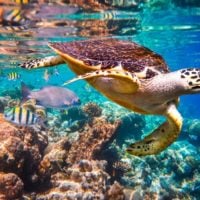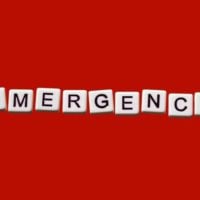Deadline: 06-Oct-21
The European Commission (EC) is offering grant to Filling Knowledge Gaps on Nutritional, Safety, Allergenicity and Environmental Assessment of Alternative Proteins and Dietary Shift.
Scope
Proposals are expected to address the following:
- consider all alternative sources of protein (e.g. plant-based, microbe-based, ocean-based (i.e. fish, algae, invertebrates), fungus-based, insect-based, cultured meat), including their processing, and avoid focusing on only one, so as to enable comparison;
- fill knowledge gaps and improve the understanding of the positive and negative impacts of each type of alternative protein and the overall dietary shift with respect to the environment, natural resources, biodiversity and climate (considering global aspects, pedo-climatic and biogeographical conditions, pollution pressure and trade issues);
- fill knowledge gaps on the characteristics of each type of alternative protein, including nutritional quality (e.g. bioavailability, the quality of the protein itself and of combined protein sources), alone and in the context of its introduction in European diets (taking into account the cultural aspects of diets and national dietary advice in the EU);
- fill knowledge gaps on the health impact of alternative proteins and overall dietary shift in the European Union, in particular for those sources of proteins for which limited information on health impacts is available, such as (but not limited to) invertebrates or insects-based proteins (e.g. allergies, compliance with nutrient-based and food-based dietary guidelines and recommended dietary patterns), while considering gender aspects, and other safety aspects (e.g. not cytotoxic, no toxic aggregates or excessive amount of toxic substances);
- conduct a comparative systemic analysis of conventional and alternative proteins. New Product Environmental Footprint (PEF)-based categories should be created and health effects should be included in diet assessment frameworks. Non-linear effects should be studied, with regard to both consumption and production;
- highlight the need for new future-proof technologies and anticipate potential issues in relation to resource availability, pollution and societal acceptability;
- create or contribute to a data space to gather knowledge, information and results of studies, and share them openly (open science) among research communities, interested parties and the public (dietary data hub). Seek interactions and complementarities with the data space for R&I and the European Open Science Cloud, and contribute to increasing the level of FAIRness (Findability, Accessibility, Interoperability and Re-usability) of dietary data;
- clearly explain how they will contribute to the farm to fork objectives and deliver co-benefits on each of the Food 2030 priorities: nutrition for sustainable healthy diets, climate and environment, circularity and resource efficiency, innovation and empowering communities (e.g. meeting the needs, values and expectations of society in a responsible and ethical way); and
- implement the multi-actor approach by involving a wide range of food system actors and conducting inter-disciplinary research. Proposals should also promote international cooperation.
- This topic should involve the effective contribution of SSH disciplines.
Funding Information
The check will normally be done for the coordinator if the requested grant amount is equal to or greater than EUR 500 000, except for:
- public bodies (entities established as a public body under national law, including local, regional or national authorities) or international organisations; and
- cases where the individual requested grant amount is not more than EUR 60 000 (lowvalue grant).
Expected Outcomes
Projects results are expected to contribute to all of the following expected outcomes:
- informing a systemic approach to integrated food policy development and informing sectoral policies (e.g. on food safety, public health, agriculture, aquaculture and the environment) through additional, up-to-date information and knowledge on alternative sources of protein and dietary shift; and
- providing solutions and assessing their potential for fighting climate change (through adaptation and mitigation), halting biodiversity loss and improving ecosystem services, promoting the circularity of the food system and improving people’s health and well-being through more nutritious, healthier and overall sustainable food systems and food choices.
Eligibility Criteria
To be eligible for funding, applicants must be established in one of the eligible countries, i.e.:
- the Member States of the European Union, including their outermost regions;
- the Overseas Countries and Territories (OCTs) linked to the Member States;
- eligible non-EU countries:
- countries associated to Horizon Europe;
- low- and middle-income countries.
Legal entities which are established in countries not listed above will be eligible for funding if provided for in the specific call conditions, or if their participation is considered essential for implementing the action by the granting authority.
For more information, visit https://bit.ly/3hezgJK









































